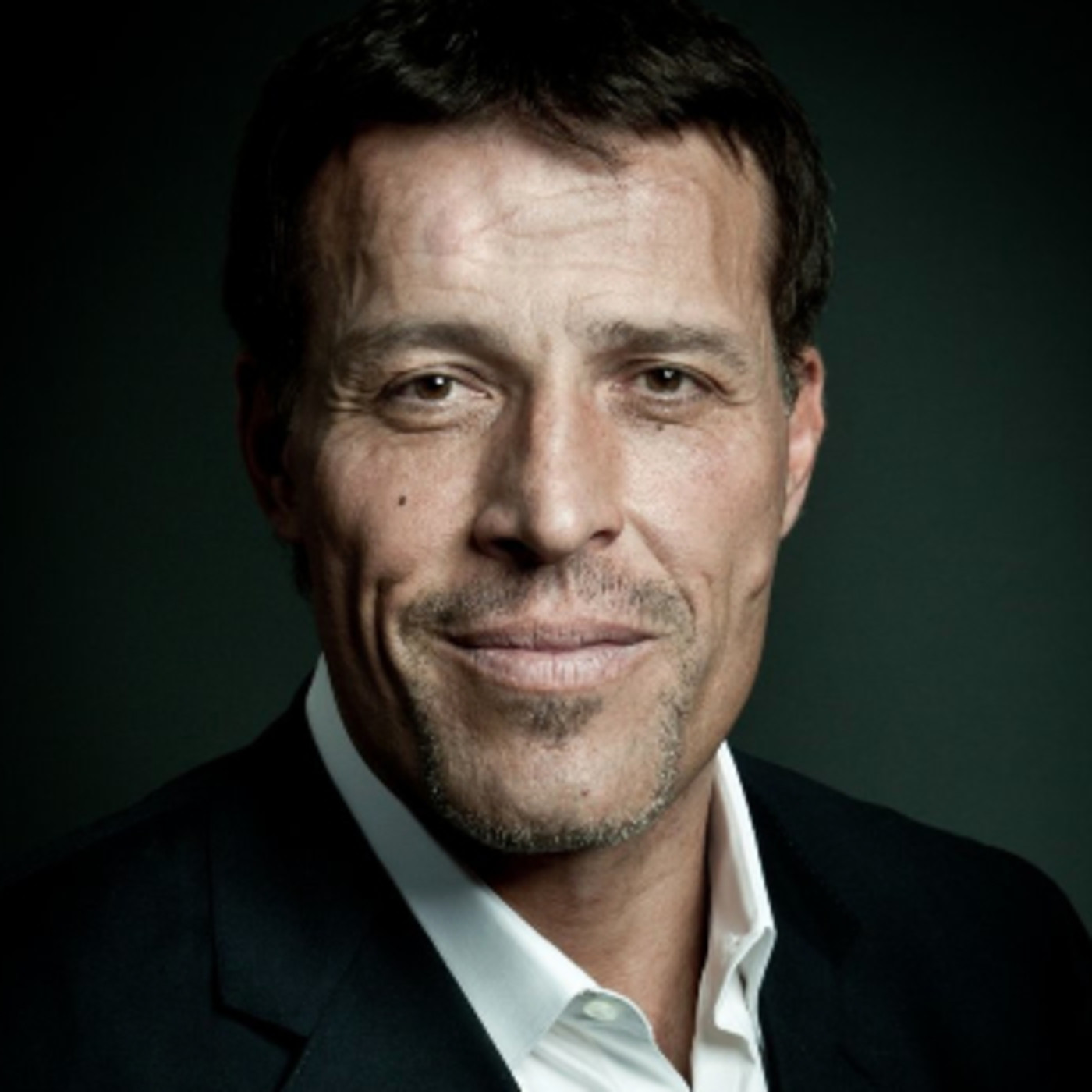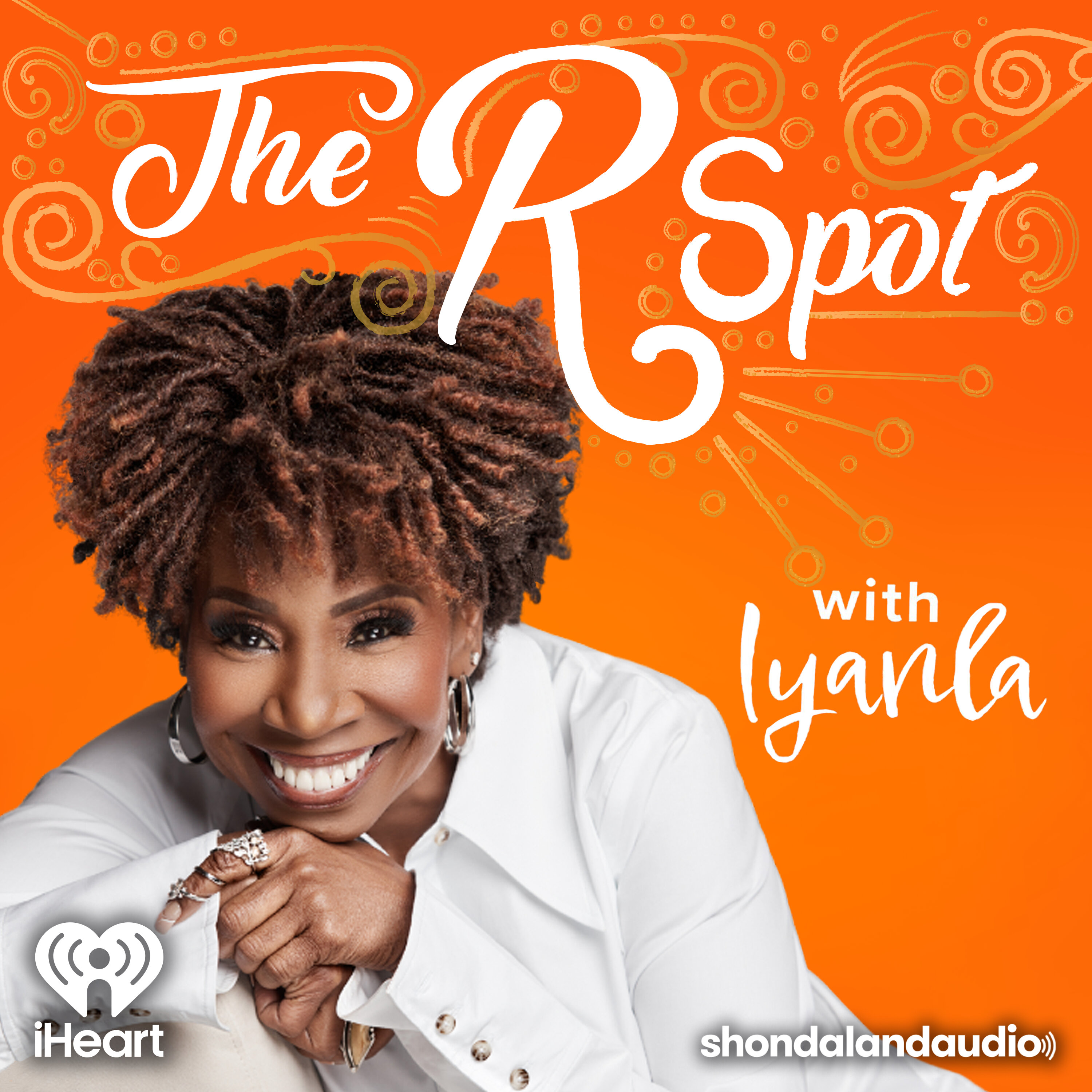
Motivational Fuel
Motivational Fuel is the podcast that ignites your inner drive and elevates your spirit. Hosted by Wondra Spencer—healthcare professional, veteran, CEO, best‑selling author, mother, wife, entrepreneur, and transformational coach—this show delivers the inspiration and clarity you need to thrive in every area of life.
Each episode features empowering conversations on:
- Strength and resilience
- Love and relationships
- Health and self‑care
- Motivation and mindset
- Lifestyle and finances
- Personal growth
- Spiritual alignment
Wondra and her guests share real stories, hard‑earned wisdom, and practical tools that help you rise with purpose and confidence. Whether you’re seeking direction, healing, or a fresh spark of motivation, Motivational Fuel gives you the energy to move forward boldly. Learn more at wondraspencer.com
Motivational Fuel
From Pledge to Practice: A Clear Guide to Mammograms, Early Detection, and Owning Your Breast Health
We turn National Mammogram Day into action with a clear pledge, a practical checklist, and a calm walk-through of 2D vs. 3D screening, callbacks, and considerations for dense breasts. We share a survivor’s story, provide access to resources, and offer simple steps to book, remind, and support.
• the mammogram pledge and why it matters
• a step-by-step checklist before, during, and after screening
• 2D versus 3D mammography and dense breast facts
• what callbacks mean and what to ask your technologist
• age, risk, and when to start screening
• access gaps, free and low-cost options, and community support
• how to do monthly self-checks and what changes to watch
• a survivor story that shows early detection works
• resources to volunteer, donate, and share with others
Please share this podcast with five people today. Take the Mammogram Pledge and book your screening. You can find the checklist on my website and social media channels. Contact your healthcare provider or visit cancer.org to schedule an appointment now.
Order My Bestseller on Bookshop!
Amazon Best‑Selling Author!
Wondra's Amazon Picks!
Best Support!
Cash App
Support my show!
Buy Me Coffee
You can sen
Amazon Best‑Selling Author!
Wondra's Amazon Picks!
Best Support!
Cash App
Support my show!
Buy Me Coffee
You can send me a cup of coffee and thank you!
Buzzsprout Referral
Disclaimer: This post contains affiliate links. If you make a purchase, I may receive a commission at no extra cost to you.
How to Follow:
Connect with me: Instagram | Facebook | TikTok | X (Twitter) | YouTube
Hello, I hope everyone is having a great day. So before we dive into the podcast this week, I want to invite you to take a moment with me. Today is National Mammogram Day. We want to earn the power of early detection because it does save lives. So let's begin with a promise to ourselves and each other. The mammogram pledge is I pledge to prioritize my breast health. I will schedule my mammogram when I'm due and encourage others to do the same. I will learn about my personal risk factors and talk openly with my health care provider. I will support access to screening for all, especially in all communities. And I will share resources, raise awareness, and help normalize conversations around breast health because early detection saves lives and every life matters. So here's a checklist that would prepare you if you're having your first mammogram or you're going to get your annual mammogram. So I want to walk you through it. So this checklist I'm going to post on social media so you can look for it and on my website. So before your appointment, you want to schedule it when it's convenient time for you. So try to book your mammogram for a week after your cycle. So your breast will be less less tender, and the experience can be a little bit more comfortable. So choose a healthcare provider that's comfortable for you. And you can get a 3D mammogram, which is like a clearer imaging for more dense press. And if you have any previous mammograms, you want to bring your records or have them transfer over to the provider. So you want to know your risk, talk to your provider about your family history, your lifestyle, any genetic factors, and don't hesitate to ask any questions if you notice any concerns that you have or changes in your breast. You want to make sure you speak up. So the day of the exam of your appointment for your mammogram, you want to skip your deodorants, lotions, powders, or perfumes around your chest and underarm areas because it can interfere with the imaging. So wear a two-piece outfit. So you just need to remove the top and your bra area. So arrive early so you can relax and maybe find some parking, complete any paperwork that you need to do. And don't forget your identification card and insurance card if needed. So during the mammogram, it's going to apply pressure, which is going to be very uncomfortable, but it's quick and it shouldn't be painful. So let the technologist know if you have any implants, if you're pregnant, if you need assistance. And there's two types of mammograms: your standard one, which is your 2D, and your 3D one, which is for denser breasts, where they can get a clearer picture of your breasts. So ask after exam, you want to ask them when will you get your results? And if you're called back, don't panic. You want to make sure that you answer any questions or concerns for the and after the exam. So once you're completing the mammogram, you can put on deodorant and you can ask for wipes or a fresh stick after you completed your mammogram. Once again, I will put this checklist on my website and social media. So welcome to the Motivational Feel podcast. This is your weekly dose of inspiration, empowerment, and real talk. Whether you're tuning in from my YouTube channel or listening on your favorite podcast station, I am so grateful you are here with me. I am your host, Wondra Spencer, the founder of Inspire and Drive LLC, and I'm a firm believer in motivation from within. The podcast, I want to give you some clarity, some purpose, some strength around the topics, and I want to share some topics around love, health, self-care, lifestyle, finances, personal growth, spirituality. And alongside my listeners like you, you can share your stories that help uplift others, rise. You can reset, refocus personally and professionally. So grab your cup of coffee, take a deep breath, and let's dive into this podcast from the inside out. So again, this is the National Mammogram Day, which is talking about the screening. I do have a previous episode from 2023, the breast cancer awareness on my website. It's 32 minutes and about 27 seconds, and it has a wealth of information. So the National Mammogram Day, I'm not sure if you know, it is the third Friday in October, part of the breast cancer awareness month. So the goal is to break down the mammograms, why they matter, how they can save lives, and especially when it comes to early detection. Whether you're scheduling your first one or you need someone to support you while you're getting your mammogram. So this is for you. So I want to definitely give a shout out to the Out of Time Mobile Notary and the CPR trainer out of Cleveland, Ohio, Miss Anitra Hawkins. Miss Hawkins will come to you directly. She has her remote online notary, her fingerprinting, bank, trust, will loans, schools, and she does CPR training for adults, kids, and teenagers. So look her up on Facebook, threads, and she has the trusted hands cpr training.com. So you can definitely support Miss Hawkins, and I just wanted to give a shout out. So with the national mammogram, it's observed, definitely encourage screening and early detection. So why it matters, mammograms screening reduce breast cancer, it finds other cancers that approve any outcomes, it targets women from different age ranges, risks. You can start around the age of 40, but if you have a family history or you're noticing something that's going on with your rest, you can start earlier and talk to your provider. So don't be afraid to do that. So mammogram screening rates are lower in the younger age groups by race regarding the insurance factors, the income. On the CDC website, for example, in 2023, 79.8% of women ages 50 through 74 had a mammogram at a rate higher than the 62.1 percent in the age of 40 to 49 age group in 2023. So factors are not getting regular checkups, not having insurance, and this is on the CDC well site. So I encourage everyone to get your mammogram, definitely. So with the mammograms, it is a low dose x-ray of breasts that's examining your breast area, and it helps detect early cancer. So if you have any symptoms, early detection can increase survival rates. Breast cancer is called in the early stages, it is a five-year survival rate, and it's over 90%. But one thing is a lot of people delay the mammograms because they fear it, misinformation, they don't have enough information. So I just want to share some information with you. So with the mammogram, you want to definitely schedule it, schedule it after your cycle when your breasts are not so tender, so they're really less tender, and you want to, as I put in the checklist, avoid the deodorants, the lotions, because they can interfere with the imaging, and try to schedule it earlier in the day, which is convenient for you, or late in the afternoon. Ask if they have any walk-in times to do mammograms, which will be great. So during the exam, your breast will be placed on a flat surface and it will be compressed. Okay, so I know it's uncomfortable, but it'll be quick, and it will have an image of your breasts. So your 2D, which is your standard, and your 3D, which is gives a detailed view of your denser breast. So if you need a 3D one, so you can ask your provider for 2D or 3D if you're not sure about which type of mammogram you need to get. So they will call you back if it's anything they need to get some additional imaging, or they need to redo it, some things like that. Definitely will give you a call back. So your wrist density and individual screening, of course, not all breasts are the same. Screening plans can be different, so your breast density is more fibrous compared to fat. Dense breasts can make it harder to spot anything abnormal on the mammogram. So they can probably need a 3D one, and then if you're linked to any breast cancer, so your family history, genetic mutations, your age, lifestyle factors. If you're a higher risk, your provider can recommend some a mammogram to you earlier or a screening or do like an ultrasound or a MRI, also. So I want to share a quote with you from a survivor that I know. She was in her early 40s, she did not have any symptoms, no family history, and her mammogram taught it caught a tiny stage one, and she had to have surgery and radiation, and she is cancer free, and she wanted to share with everyone that the screening did save her life. So, your steps I want you to do schedule your mammogram, talk to your provider, and be personal with your provider, don't be scared, you know, anything you're having issues with your breasts. You can research any free mammograms, any low-cost screening. If you want to donate a volunteer locally, you can look up the National Breast Cancer Foundation, the CDC, Breast Cancer Early Detection, you can volunteer and donate also. I want to thank everyone for joining the podcast today. Really share with everyone about early detection because it saves lives, and mammograms are really powerful. So if you you listen to the pledge earlier, review it, it is on the national breastcancer.org, the CDC website, and with the pledge, it's just telling you to schedule your mammogram when it's due, share with family, your friends, and co-workers to get screened, your pledge for personal risk factors, talk to your provider, get the support that you need in the communities, and share because a lot of people are really nervous about talking to others about their breasts and breast cancer and mammograms. So you really shouldn't be shy about the topic. So commit to sharing with others, and if you're 40 and over, if you have risk factors, call your provider today or use your local cancer.org resources and book your mammogram. So with the mammograms, you're gonna feel your pressure, it won't be that painful, and it can take about 15 to 30 minutes. If you took the mammogram pledge, it's at the beginning of the podcast. Share it, live it, and help someone get supported and feel seen about the mammograms. So with your breasts, you want to check for lumps or any changes. If you have like a discharge, definitely go, but check your breasts seven to ten days after your cycle because that would be is less tender. If you don't have a cycle, you want to check on a specific day as a reminder. So if you put on your calendar the first, so any persistent lumps or changes, go to your doctor immediately, and some lumps are benign, but you want to get follow-up about the your breast. So with the mammograms, you want to do them monthly, seven to ten days after your cycle. Understand your baseline, so any changes, maybe keeping a log so you can write it down if you're feeling any changes, and be consistent, make it a habit. You're looking for any lumps, any thickness, the changes in sizes, the change in a one breast, the skin changes, if you have any dimpling, there, redness, of course, nipple discharge. You want to go get checked out, a change in nipple size. Maybe the nipple is inwards. So if you find any changes, don't ignore it. Call your provider, get a get your appointment immediately. Definitely don't put it off. Remember, all lumps are not cancerous, but definitely check with your provider and know your breasts, know what they feel like, what their normal should look like. Look in the mirror, you know, really take action and look at your breasts. With your self-exams, they cannot replace the professional ones with the provider and your mammograms, but it's a way to get familiar with your bot with your body. So, to all of my survivors, your fighters, your thrivers of breast cancer, your courage is a beacon. Your strength, your resilience, your vulnerability, you inspire me, others to rise, speak out, and take action. Whether you're in the midst of the fight, you're standing tall on the other side, your story matters. You remind us that early detection saves lives, it can support and heal, and that hope is never out of reach. Thank you for showing us what true bravery looks like. We see you, we celebrate you, and we deeply appreciate you. So please share this podcast with others. As you may know, how to perform a breaks exam or help them schedule their mammogram if they're so busy. But definitely remember early detection saves lives. Take the mammogram pledge, share the tech checklist that I share with you, share with someone. Let's normalize these conversations around brace health. You got this, and you're not alone. Until next time, stay informed, stay empowered, and take care of yourselves. The upcoming podcast, I want to share some books. So it would be National Book Month, which is in October. And you can purchase my books at the local retailers on my website. And I want to know, you should know this that you have the power of your story, your spirit matters. Brought to you by the Inspire and Drive team. And if today's episode spoke to you, share with five other people. My YouTube channel, I'm on Facebook, Instagram, TikTok, X LinkedIn, Threads, Alignable at Wondra Spencer, and I see my listeners from all over the world. Thank you for checking in at the podcast. You can see my email. I will send one back. Maybe even shout out someone on the next coming episode. Until next time, protect your energy, honor your growth, keep driving forward, and remember this is the mammogram day. Get your mammograms and reminders. Have a great day.
Podcasts we love
Check out these other fine podcasts recommended by us, not an algorithm.

Motivational Fuel
Wondra Spencer
Off-Balance Podcast | Faith, Family & Entrepreneurship
Dr. Brooks Demming
The Patdown with Ms. Pat
Ms. Pat
The Courtney Sanders Podcast
Courtney Sanders
Tony Robbins
Israel Guerrero
The Mel Robbins Podcast
Mel Robbins
